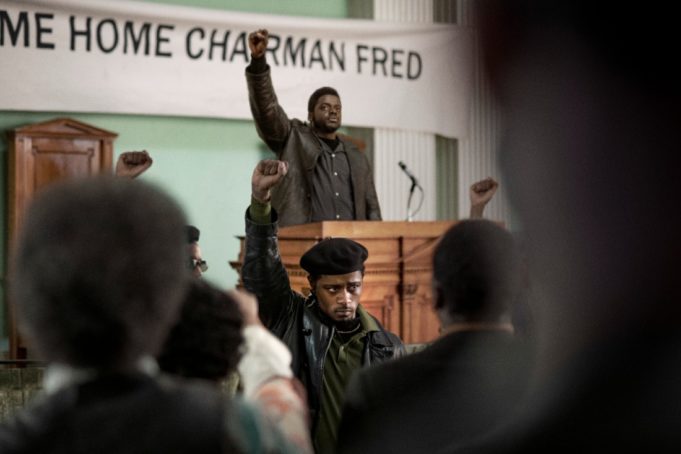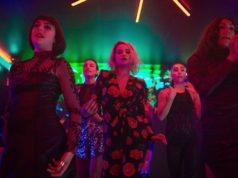Back in 1992, Spike Lee’s flawed and magnificent Malcolm X and the galvanizing performance at its center raised the Black Muslim leader from the shadows of the civil rights movement and made him into a pop culture icon. Now, Judas and the Black Messiah aims to do the same for Fred Hampton. Heaven knows the Black Panther Party leader warrants it, as the charismatic “Chairman” coined the term “rainbow coalition” and was martyred just like Malcolm X and Martin Luther King, though his martyrdom didn’t come at the hands of a rival Muslim faction or a lone white supremacist but at the hands of federal agents and police. If the bold and abrasive Judas and the Black Messiah isn’t on the level of Spike Lee’s epic, it’s not too far off.
LaKeith Stanfield portrays Bill O’Neal, a small-time criminal in Chicago in the late 1960s who steals cars by flashing a fake FBI badge before he’s caught by the real FBI. The agent in charge (Jesse Plemons) gives him a choice between six and a half years in prison for his crimes or joining the Black Panther Party, cozying up to Fred Hampton (Daniel Kaluuya), and informing the bureau about Hampton’s doings. The agent seems reasonable when he tells Bill that the Panthers are no different from the Ku Klux Klan, but once Bill is on the inside, he starts to take a different view of things.
This is the second feature film by the awesomely named director/co-writer Shaka King. I’ll admit I haven’t seen his debut feature, a comedy called Newlyweeds. He makes this into a necessary companion piece to Aaron Sorkin’s The Trial of the Chicago 7, which touches on some of the events here but focuses elsewhere. It’s good of King to include a scene between Fred and his pregnant girlfriend Deborah Johnson (Dominique Fishback), as she privately calls out his rhetoric about dying for the cause by pointing out that she doesn’t have that luxury. King includes a framing device re-creating the 1989 interview that O’Neal gave to the makers of the PBS documentary Eyes on the Prize 2. That leads us to the haunting detail that O’Neal committed suicide the day that that interview aired on TV. Even with that, the story of the undercover guy who goes in too deep has been told many times, and the only thing that makes it work is the anguish on the face of Stanfield as Bill buys into Fred’s liberation theology only to deliver him into the hands of his murderers.
Ah, but it seems Stanfield’s fate to be overshadowed by his co-stars: Brie Larson in Short Term 12, David Oyelowo in Selma, Kaluuya again in Get Out, Adam Sandler in Uncut Gems, Daniel Craig in Knives Out. Here, he’s upstaged by the most impressive performance I’ve ever seen from Kaluuya. He gives his line readings an insinuating, cajoling tone and a bopping rhythm as Fred proposes an alliance to a skeptical local gang leader (Khris Davis). You won’t soon forget the brash confidence with which he leads a group of Panthers into a white supremacist meeting and convinces them that the two groups share a common enemy in the police. He’d deserve Oscar consideration just for the speech that Fred gives to a church full of followers shortly after his release from prison, which is enough to bring you out of your seat. He brings Hampton’s intelligence, charisma, and commitment to fiery life in Judas and the Black Messiah, and this character’s presence resonates more than ever now.
Judas and the Black Messiah
Starring LaKeith Stanfield and Daniel Kaluuya. Directed by Shaka King. Written by Shaka King and Will Berson. Rated R.












